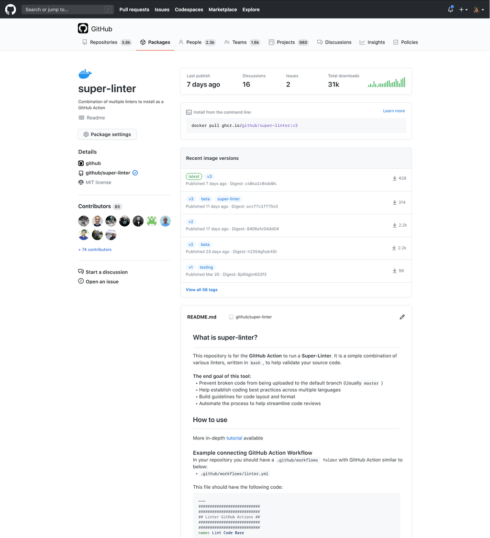
GitHub has introduced a new container registry to improve how it handles containers within packages. The registry is available as a public beta, and will enable users to enforce better access policies, encourage the usage of standard base images, and promote innersourcing.
“While GitHub Packages already gives teams greater traceability of their software supply chain, today we’re adding new capabilities to improve the experience and performance it provides for developers with GitHub Container Registry,” Kayla Ngan, a product manager for GitHub, wrote in a post.
The solution will be free for public images, and free for private images during its beta. Once the solution becomes generally available, private images will follow the same pricing model of GitHub Packages. The company will also provide data sharing and fine-grained permissions for containers across organizations.
AWS introduces Bottlerocket
Bottlerocket is an open-source Linux distribution designed to run containers. “As our customers increasingly adopt containers to run their workloads, we saw a need for a Linux distribution designed from the ground up to run containers with a focus on security, operations, and manageability at scale. Customers needed an operating system that would give them the ability to manage thousands of hosts running containers with automation,” Samartha Chandrashekar, a product manager at AWS, wrote in a post.
According to Chandrashekar, Bottlerocket will improve security and operations for conaterinzed infrastructure.
Postman launches API development web client
The new web client is a browser interface that simplifies access and collaboration. “Postman started off as a Chrome plug-in on the web, and then switched to a desktop application with amazing adoption,” said Postman CEO and co-founder Abhinav Asthana. “We’re now returning to the web to harness the full power of the internet, and make API development faster, more collaborative, and more scalable.”
According to the company, as the amount of API requests grew, it was obvious it needed to scale up the speed and scope of its API development tools and processes. Previously, Postman was only available through the desktop, which users complain is slow and challenging to maintain. The web version of Postman tackles use access, onboarding, collaboration through deep linking, and the ability to send requests at scale.
Tricentis announces automated testing for ServiceNow
According to the company, the new test automation solution for ServiceNow will enable 40x faster testing with a high level of usability to increase test coverage and quality. The solution features continuous automation, accelerated deployments, customizable workflows, decreased defects, and DevOps compatibility.
“The addition of Tricentis Test Automation for ServiceNow augments Tricentis’ overall continuous testing strategy and expands the company’s presence in the enterprise applications space with this ServiceNow focus,” said Melinda Ballou, research director, Application Life-Cycle Management, IDC. “We are seeing significant growth in the Automated Software Quality (ASQ) arena and the need for continuous test automation to increase efficiency and improve execution as businesses must rapidly respond to dynamic change and digitization across applications with targeted capabilities.”






